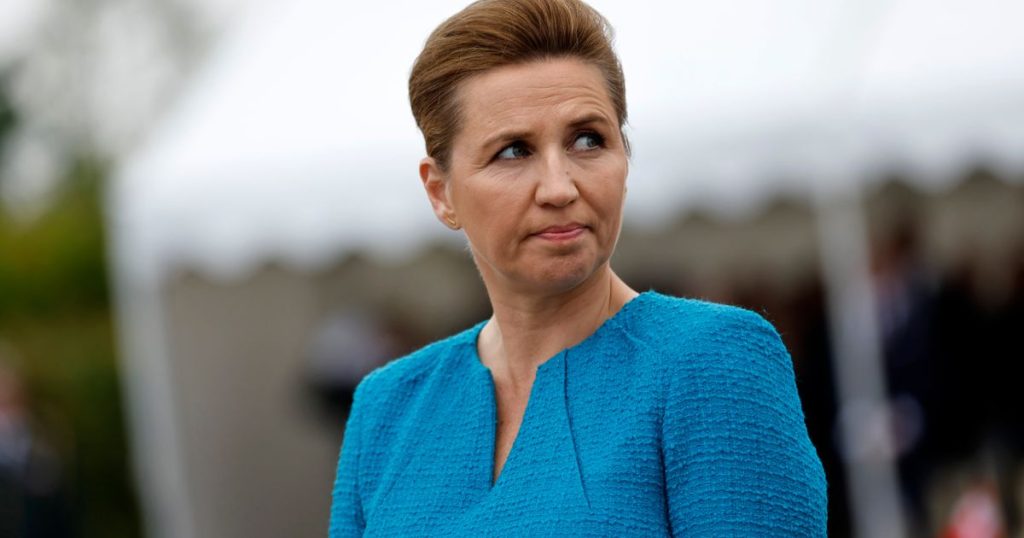Danish Prime Minister Mette Frederiksen was reportedly assaulted by a man in Copenhagen, Denmark, just ahead of the European Union parliamentary elections. The incident led to the arrest of one person, and an investigation is currently ongoing. Frederiksen’s office confirmed that she was “shocked” by the assault, but there were no immediate details on how it happened or if she was physically injured. The attack occurred on a square in the capital city, and it was not linked to any campaign events.
The news of the assault sparked shock and condemnation from politicians both in Denmark and abroad. Swedish Prime Minister Ulf Kristersson labeled the incident as an attack on democracy itself, emphasizing the importance of respecting democratically elected leaders. European Council President Charles Michel denounced the assault as a “cowardly act of aggression,” highlighting the need to protect political figures from violence. Frederiksen had been campaigning with the Social Democrats’ lead candidate for the EU elections, Christel Schaldemose, at the time of the attack.
The assault on Prime Minister Frederiksen is part of a concerning trend of violence against politicians in the lead up to the EU elections. In Germany, a candidate from the center-left Social Democrats was severely beaten while campaigning for a European Parliament seat in May. This incident, along with the attempted assassination of Slovakian Prime Minister Robert Fico in mid-May, has raised concerns about the safety of political figures across Europe. These attacks have sent shockwaves through their respective nations, prompting calls for greater security measures for politicians.
As the investigation into the assault on Prime Minister Frederiksen continues, there is uncertainty surrounding the motives behind the attack and the specifics of how it unfolded. The assault occurred in a public square in Copenhagen, adding to the unpredictability and potential danger faced by political leaders during the campaign season. Politicians from various parties in Denmark and other European countries have expressed solidarity with Frederiksen and condemned the violence directed at her. The timing of the assault just before the EU elections has raised questions about the security protocols in place for political figures during such crucial events.
The assault on Danish Prime Minister Mette Frederiksen underscores the vulnerability of political leaders to violence and raises concerns about the safety of elected officials in Europe. The incident has prompted widespread condemnation and calls for increased protection for politicians, especially during high-stakes events like the EU elections. Frederiksen’s shock and the subsequent investigation highlight the need for a comprehensive approach to safeguarding political figures from harm while allowing them to engage with the public. As the case unfolds, there will likely be discussions on improving security measures and addressing the underlying factors contributing to violence against elected leaders.
Overall, the assault on Prime Minister Frederiksen serves as a stark reminder of the risks faced by politicians in the current political climate. The outpouring of support and condemnation from leaders across Europe demonstrates a united front against violence and underscores the importance of preserving democratic values. As investigations into the attack progress, there will be a focus on preventing similar incidents in the future and ensuring the safety of political figures remains a top priority. The assault on Frederiksen has brought attention to the need for heightened security measures and proactive measures to protect elected officials from harm.


